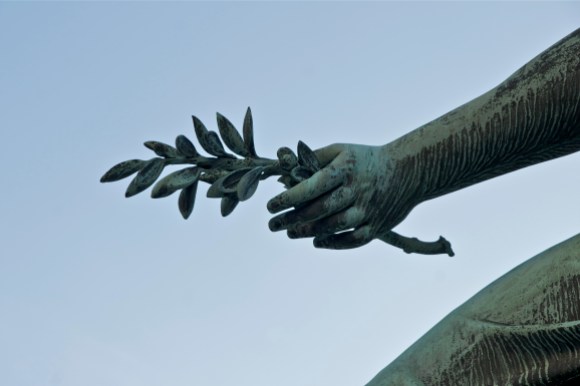
Two years ago, I was editing the English Wikipedia’s article for taiko, a set of Japanese drums, when I had a disagreement with another editor. We differed over the inclusion of a glossary of Japanese terms in the article and how best to present it. After some discussion, we eventually came to an agreement.
Most disagreements among Wikimedia contributors are like this; we work things out, in spite of different perspectives. In fact, different perspectives are part of what makes Wikipedia so strong.
Unfortunately, disagreements on the internet can escalate to harassment, and the Wikimedia projects are not exempt. Wikimedia contributors have also reported behavior that goes far beyond ordinary disagreements:
“Someone edited Wikipedia articles about criminals and replaced their names with mine.”
“I’ve … been accused of being a naive teenager, a jealous girlfriend, a bitch… you name it…”
“[I was] hurtfully mocked for my gender and an illness.”
These are just a few examples of threatening and aggressive behavior on Wikimedia sites—harassment creates a hostile atmosphere and can compromise both the ability of individuals to contribute as well as their safety and well-being. A 2015 survey conducted by the Wikimedia Foundation revealed that 38% of responding users experienced being harassed on or about Wikimedia projects. More than half of the people who reported being harassed this way also reported subsequently decreasing their participation on the project on which they were harassed. This isn’t unique to the Wikimedia projects; online harassment affects roughly 40% of adult internet users according to a 2014 Pew Research study.
To improve the way that harassment is prevented and managed on the Wikimedia sites, we launched an idea-building event on June 1 called the Inspire Campaign. These events, which we’ve run twice previously since 2015, have already tackled some of the biggest challenges in the Wikimedia movement: bridging the gender gap and improving how contributors review and curate project content. Ideas can be brought back to local communities to help decide on implementation, or can be submitted for a grant offered by the Foundation.
In just the first two weeks of this campaign, more than 200 ideas have been submitted, and around 535 contributors have participated either by submitting an idea or providing feedback. Translations of materials for the campaign have so far been provided for nearly 90 languages, and participants have come from many language communities including Arabic, French, Hindi, Japanese, Russian, and Spanish.
Here are a few examples of ideas offered during this campaign. Please consider leaving feedback to support or improve them, or consider joining with others to help implement them:
- Developing help pages on all Wikimedia projects that provide resources on what to do if you are harassed.
- Conducting research on how on-wiki systems handle cases of harassment and their efficacy beyond the research conducted by the Foundation.
- Proposal to semi-protect the User: namespace by default to prevent harassment.
- Making content review more focused on active collaboration to produce content that discourages problematic interactions.
There are many other ideas that could use your help. If you have ideas of your own on how to address harassment, or want to collaborate with others on ideas already proposed, please take part in the ongoing Inspire Campaign! The campaign will be open through June 30, 2016, and Wikimedia Foundation Rapid Grants are currently available to help ideas that need funding.
Chris Schilling, Community Organizer
Wikimedia Foundation

Can you help us translate this article?
In order for this article to reach as many people as possible we would like your help. Can you translate this article to get the message out?
Start translation